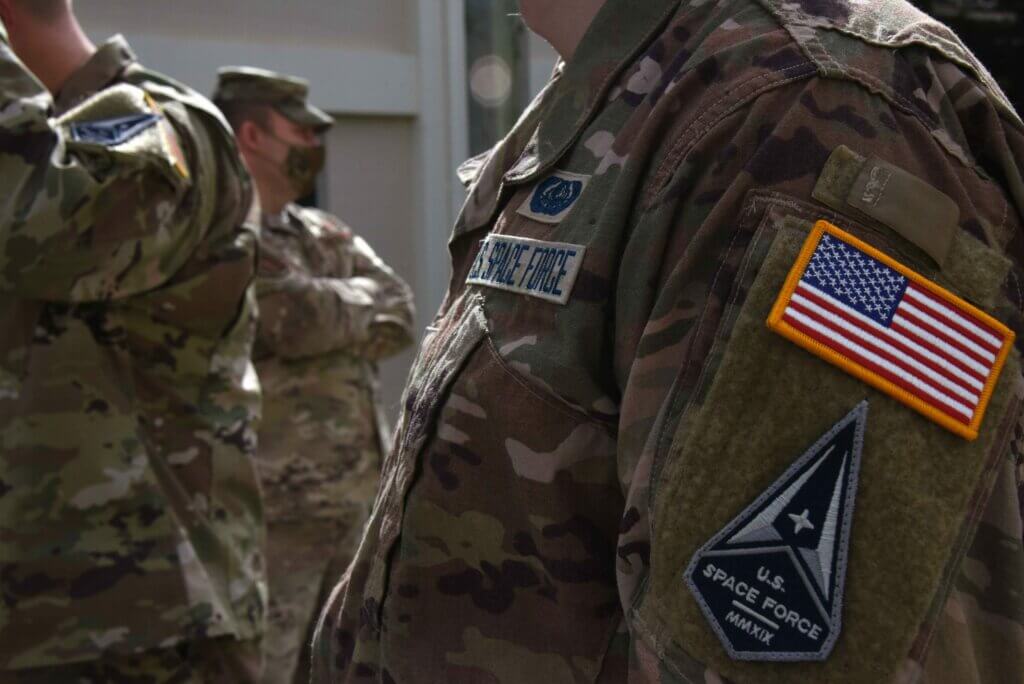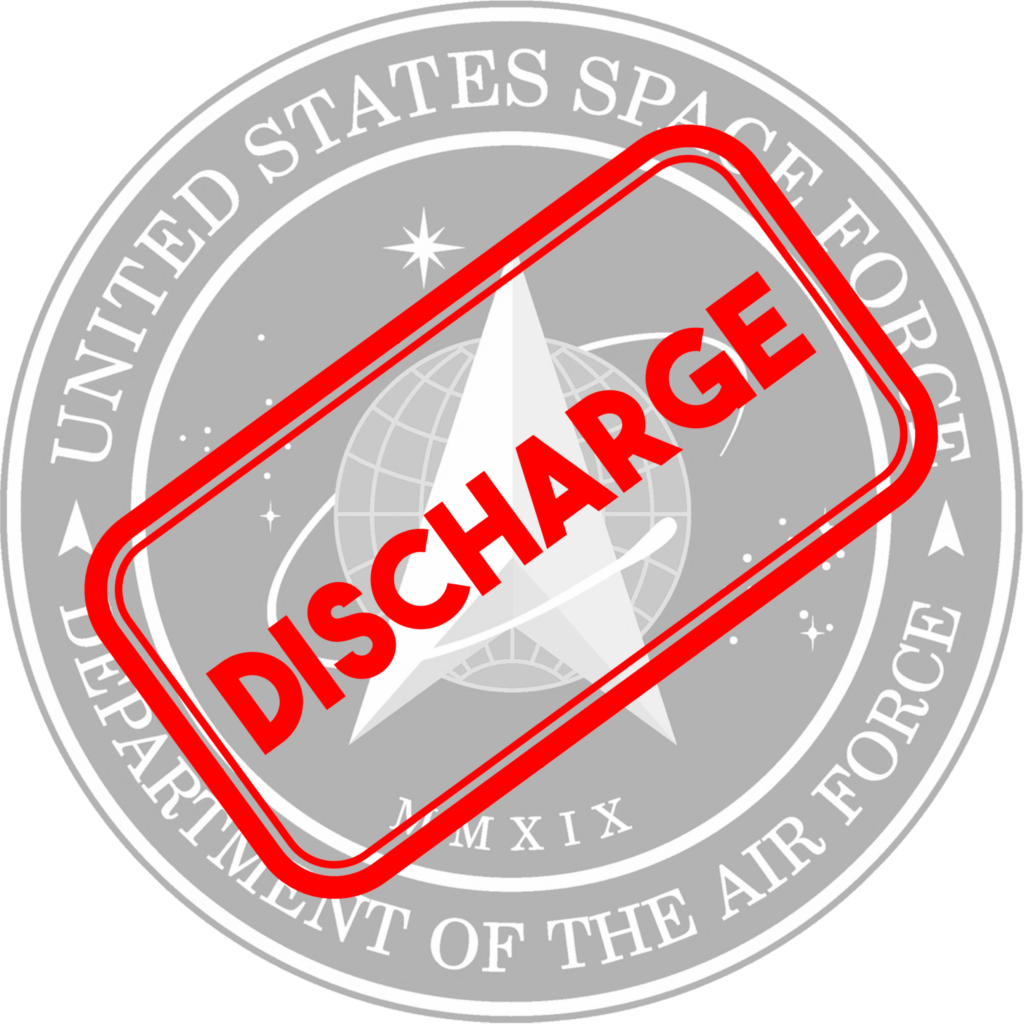You signed up to serve, but now your command is trying to discharge you. You have a lot on the line. The benefits you earned, from the G.I. Bill to disability compensation, may all depend on the type of Space Force discharge you receive. At Military Justice Guides, we have helped countless clients deal with a potential military discharge, and we’re here to help you understand the types and impacts of a Space Force discharge.
For enlisted members, Space Force discharges are governed by AFI 36-3208. The majority of Guardians who are separated prior to the expiration of their term of service are separated under Sections 5D, 5E, 5F, 5H, and 5K of that instruction. For example, Guardians may be separated for:
Per AFI 36-3208, paragraph 5.22, Guardians in entry-level status may be discharged when their unsatisfactory performance or conduct shows they are not qualified to be productive members of the Space Force. A Guardian may be discharged under this provision only if the discharge processing starts during the first 180 days of continuous active military service or the first 180 days of continuous active military service after a break of more than 92 days of active service.
Under paragraph 5.25 of AFI 36-3208, Guardians are subject to discharge for unsatisfactory performance based on documented failure to meet Space Force standards. These circumstances may include unsatisfactory duty performance (such as failure to perform assigned duties properly, a progressively downward trend in performance ratings, and/or failure to demonstrate the qualities of leadership required by the member’s grade), failure to maintain standards of dress and personal appearance or military deportment, failure to progress in military training required to be qualified for service with the Space Force or for the performance of primary duties, and failure to meet minimum fitness standards. A Guardian may not be discharged for unsatisfactory performance until the Guardian has been formally counseled about the deficiencies and has had a chance to overcome them.
This is the most common cause of a Space Force discharge. Under Section 5H of AFI 36-3208, discharges for misconduct may be based on: Minor Disciplinary Infractions, or military infractions that result, as a rule, in informal or formal counselings, letters of reprimand, or Article 15 nonjudicial punishments; A Pattern of Misconduct, such as discreditable involvement with law enforcement or conduct prejudicial to good order and discipline; Civilian Conviction; Commission of a Serious Offense; or Drug Abuse. Prior to discharge, the member should be counseled about the deficiencies and given a chance to overcome them.
The “type” of Space Force discharge will be reflected on your DD214 upon discharge. This is commonly referred to as your “Separation Code.” Depending on the type of discharge you receive, you may be limited in your future plans. For instance, Guardians separated for drug abuse may be unable to re-enlist or serve in federal government positions.

The immediate impacts of a Space Force discharge are obvious — you lose your paycheck, your active duty benefits, and your career as a Guardian. But the future impacts almost always depend on the “characterization” of your service. How your service is characterized is different than the type of discharge you receive. Upon discharge, your service may be characterized in the following manners:
The honorable characterization is appropriate when the quality of the Guardian’s service generally has met Space Force standards of acceptable conduct and performance of duty or when a member’s service is otherwise so meritorious that any other characterization would be inappropriate.
If a Guardian’s service has been honest and faithful, this characterization is warranted when significant negative aspects of the Guardian’s conduct or performance of duty outweigh positive aspects of the Guardian’s military record.
A discharge under other than honorable conditions is an administrative separation from the Service under conditions other than honorable. This characterization is appropriate when discharge is based on a pattern of behavior or one or more acts or omissions that constitute a significant departure from the conduct expected of Guardians. The member must have an opportunity for a hearing by an administrative discharge board before this characterization may be authorized.
The “characterization” of your service determines how the Department of Veterans Affairs will provide you benefits. Although every case is different, the following rules generally apply:
For more information about characterization of service and VA benefits, check out our FREE PAMPHLET – “Benefits by Discharge Characterization.”
If you are facing a Space Force Discharge, our guides and products can help. If you are interested, please feel free to read more on our website or purchase a Space Force Discharge Response Template below:

Our Discharge Response Template is written by experienced military officers. When you purchase this template, you will be able to download and get started!
Military Justice Guides and MilitaryJusticeGuides.com are not law firms, nor do our employees act as legal counsel. MilitaryJusticeGuides.com provides an online portal to give users a general understanding of military law and to provide an automated software solution to individuals who choose to prepare their own documents. MilitaryJusticeGuides.com Services may also include a review of your answers for completeness, spelling, grammar, and for internal consistency of names, addresses and the like. At no time do we review your answers for legal sufficiency, draw legal conclusions, provide legal advice, opinions or recommendations about your legal rights, remedies, defenses, options, selection of forms, or strategies, or apply the law to the facts of your particular situation. We are not a law firm and may not perform services performed by an attorney. Military Justice Guides and MilitaryJusticeGuides.com, its related Services, and its forms or templates are not a substitute for the advice or services of an attorney.
